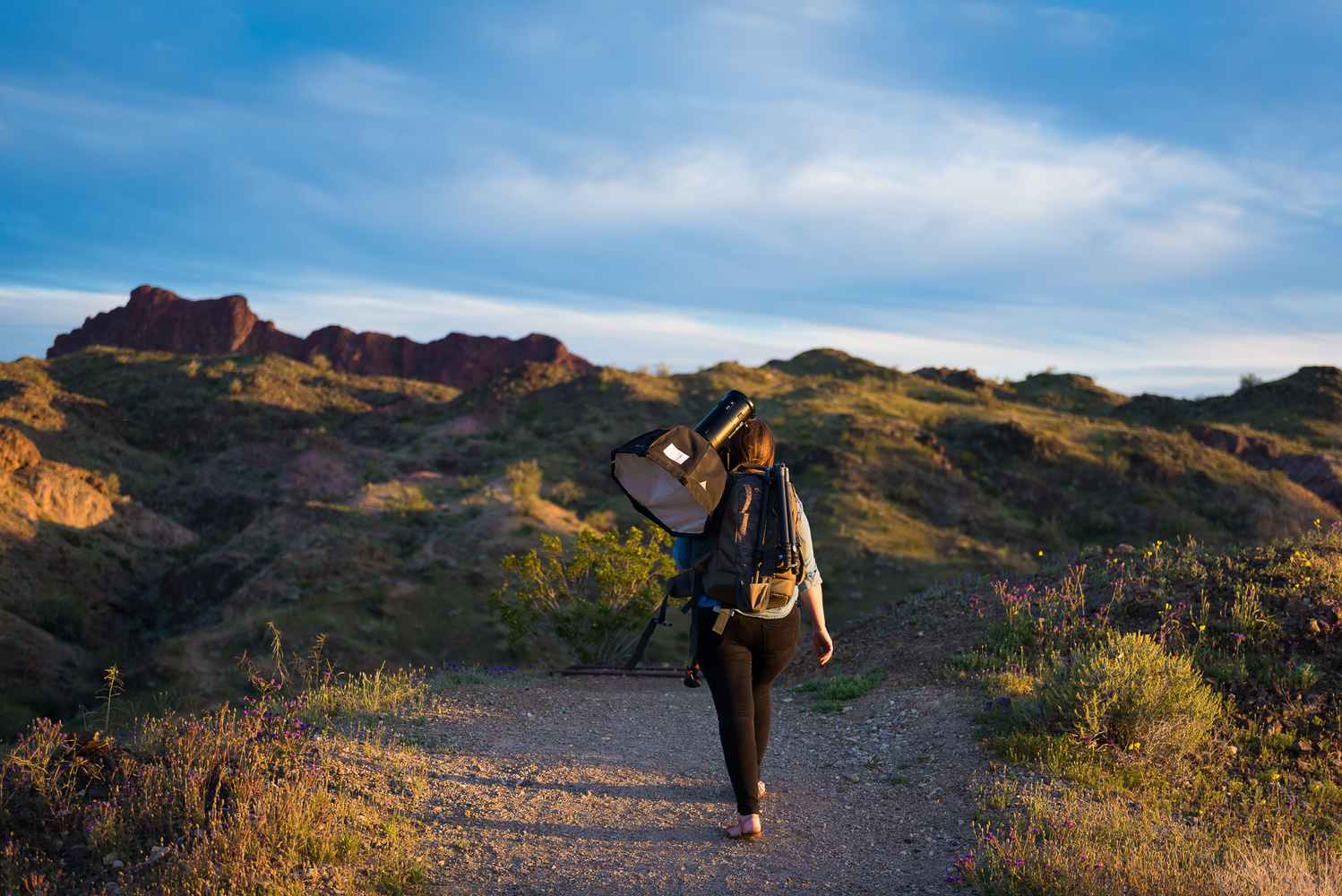In a world where everyone wants to be a star photographer, there isn't nearly enough discussion about the benefits of a good photo assistant. Here are a few tips for those interested in assisting a professional photographer and a few things for photographers who may be seeking an assistant to consider.
The value of a good photo assistant can’t be understated. From helping keep things organized to hanging over precarious cliffs to get into position to light my subjects, without the help of my wife, who has served as my assistant and second shooter for nearly 10 years, much of what I do would be much more difficult and nearly impossible at times.

Not Everyone Wants to Be an Assistant
Not all photo assistants are created equal, nor do they all have the same goal in mind. For some, the idea of gathering as much information about the way you operate so they can learn from you and do it for themselves as soon as possible is more attractive than sticking it out as a photo assistant for the long haul. There’s nothing wrong with this practice, but it’s something to consider before sharing all of your trade secrets with someone who may only be using you as a stepping stone.
Photo Assistants Should Know the Basics
If your business is centered around portrait photography, it’s good practice for your photography assistant to be somewhat studied when it comes to posing, lighting, and composition. This doesn’t mean you should be looking for art degrees or certificates when talking with potential help, but considering the vast amount of free information available online, this isn’t asking a lot of someone these days.
Start by Sharing Some Responsibility
When beginning to work with a new photo assistant, whether you’ve known this person for years or not, it’s important to not overload them with responsibility on their first shoot with you.
Develop an equipment checklist with them if you don’t already have one. Task them with becoming familiar with all of the gear listed on the equipment checklist and delegate to them the responsibility of making sure all of that gear is cleaned, charged, and in working order before each set. This will take some of that workload off of your shoulders and ensure that you’re not forgetting anything important while you’re focused on the creative side of photography.
Pre-Shoot Meetings Are a Must
Make sure to set some time aside either at the time you book a shoot or before you leave for one to communicate with your assistant about the shoot and the vision you have for it. If you’re going to be using a complicated off-camera flash setup, it can be quite difficult for someone to interpret what you’re trying to achieve, and trying to get that across to someone on set in front of your clients isn’t very professional. Use diagrams and sketch out the way you intend to light your subject if it helps your assistant set that up for you on set.
Involve Them in Your Process
In order for an assistant to understand why you’re asking them to do something like move closer to a subject with the light or to add a grid to a modifier to help control light spill, it’s best to actually show them. Let them look at a few shots on the back of your camera from time to time so they can see the effect they have on an image. Letting them observe how different angles and light sources affect things like shadows and skin tones will be the most helpful in their journey to becoming an excellent lighting assistant. Once they understand what you’re after and how to help you create that, your workflow will improve greatly.
Give Credit Where It’s Due
Some of us thrive on recognition. Just check out Donald Trump’s Twitter account. If you couldn’t have created an image without the help of your assistant, give them the credit they deserve. It’ll make them feel more invested in your photography and hopefully encourage them to be a larger part of it.
Whether you’re in need of help and willing to share some of your knowledge (and earnings) with someone willing to assist, or you’re just getting started in photography and searching for a chance to assist and learn, much of what makes a photo assistant such a valuable asset is the same across many genres of photography.
Did you get your start in photography assisting another photographer? Do you currently utilize a photo assistant? How have they been most helpful? Let us know in the comment section below.







I could be worth several million dollars if I was an assistant.
It isn't too late
It certainly is for Annie Leibovitz.
this depends greatly on how much the assistant weighs. or this is an outright attack on skinny assistants.
Oh I have so much to say about this and who I worked for . They totally should read this and take notes
I've heard horror stories about how some assistants are/have been treated. Not cool
Dude , I have been part of that treatment and I can honestly say thats why I will not assist any more. I am a good assistant but I refuse to do it any more out of fear that the next time someone talks to me like that I am gonna lay them out and spend the rest of the day in central booking. I have horror stories for you.
My assistants are the best thing that has happened to me in my work.
Some saved me from impossible situation. One even saved my life.
I could not have worked without them.
They are a big part of the success of a photo session.
As of today, a 150 pound assistant would be worth $3.1M at spot price.
I am in NY , and I am 255lbs assistant for the price your offering . Let me know when you need me .